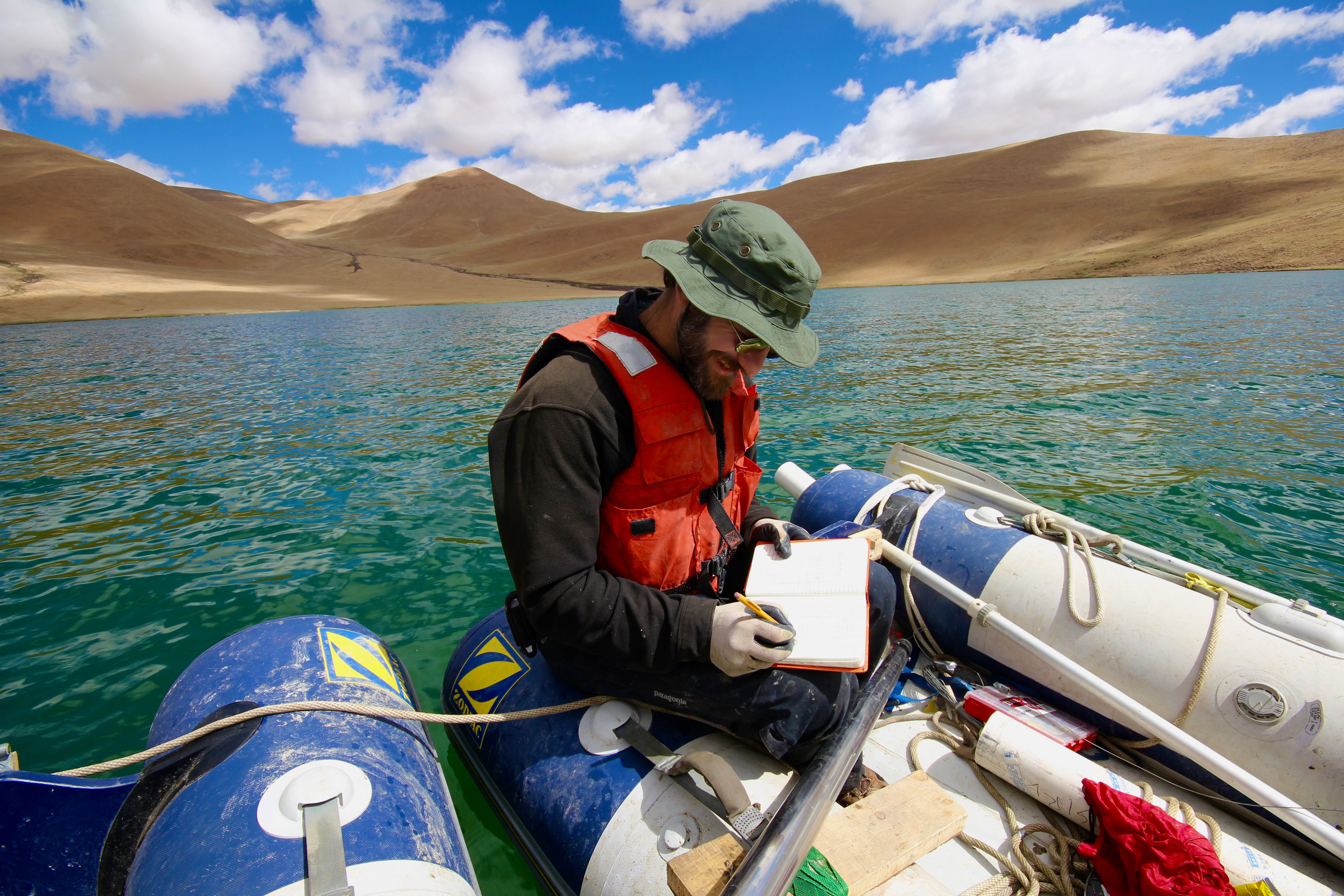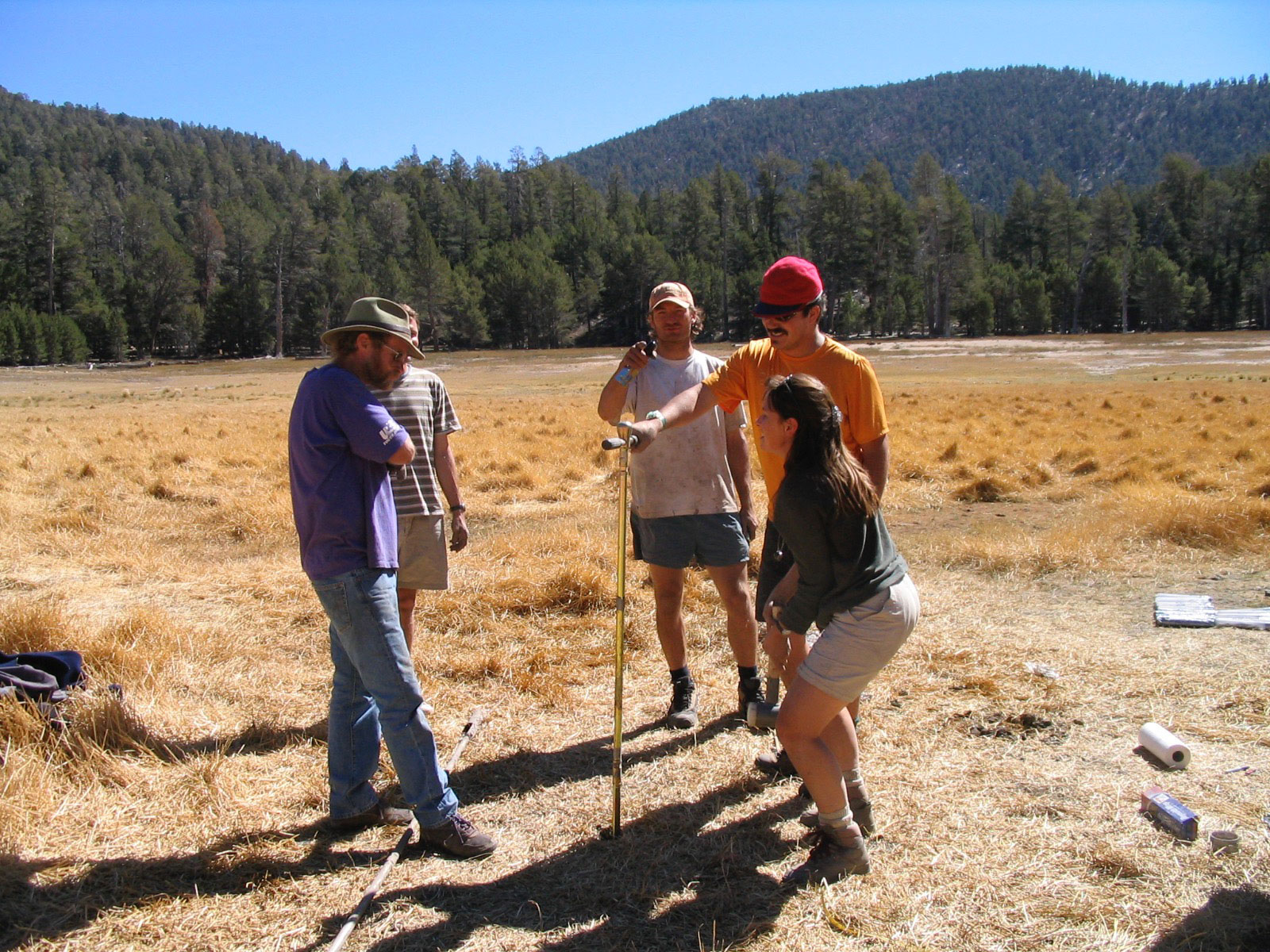Broxton Bird, Ph.D., associate professor of earth sciences in the Purdue School of Science at IUPUI is one of the recipients of the 2021 Research Frontiers Trailblazer Award.
Established in 2010, this award recognizes outstanding IUPUI researchers who show promise in becoming nationally and internationally known for their research and creative activity. It is given to associate professors within the first three years of being appointed or promoted to that title.
Bird, who focuses his research on paleoclimatology, earned the award for his international climate change research focused on three geographical areas: the Colombian Andes, Tibet, and right here in the Midwest. He expects his research will help us understand the impact climate has had on humans, humans have had on climate, and the positive changes we can make going forward.

I hope that my work helps people appreciate how complex and interconnected the Earth’s climate system is.”
Broxton Bird, Ph.D.
“I hope that my work helps people appreciate how complex and interconnected the Earth’s climate system is. How even small changes can propagate through the system to effect real and significant changes that can have far reaching and unanticipated impacts,” explains Bird. “I also hope that my research serves to highlight how we as humans have been affected by climatic changes in the past and how we as a society have impacted the climate and environment.”
High Andes
Bird’s research in Colombia focuses on topography and climate change. The high Andes store monsoonal precipitation and supply it to surrounding regions throughout the year, like a water tower. Bird is looking at sediment samples from high and low elevation lakes to determine how water resources in the Andes responded to temperature changes in the past, as this will help better understand how they will respond to future warming.
Tibet
Bird’s research in Tibet uses lake sediments to look at how climate changes over the last 11,700 years impacted Indian summer monsoon (ISM) precipitation.
Like the Andes, the Tibetan Plateau serves as water tower, providing fresh water to more than 1 billion people in South Asia. “My research efforts are aimed at improving predictions of how the Indian summer monsoon will respond to continued warming, which has direct implications for the more than 2 billion people who depend on it for essential fresh water,” explains Bird. “To do this, I am developing records of key climatic variables, including effective moisture, the amount of precipitation, and landscape erosion from lake sediment archives.”
Midwest and Mississippian period
Bird is working on several projects in the Midwest. First, he’s investigating climate variability over the last 16,500 years. Specifically, he’s looking at the balance between precipitation/evaporation and things like changes in Earth’s orbit, ocean circulation, and abrupt events like volcanic eruptions. This research will help better forecast how increases in temperature can impact the frequencies and intensities of droughts and rain/snow systems.

Bird is also looking at how climatic changes have impacted the landscape by comparing flooding and channel migration data to paleoclimate data.
“I am working to understand the climatic processes responsible for landscape evolution in the Midwest, which is useful for predicting how continued climatic changes are likely to impact flooding frequencies and erosion patterns,” says Bird.
Finally, he’s working with archaeologists and geomorphologists to investigate human interactions with climate and the landscape. He’s hoping to better understand what role climate, drought, and pollution played in the population changes and ultimate collapse of the Mississippian from 1000 to 1450 CE.
Although Bird has always felt a strong connection to the outdoors and the natural world, it wasn’t until college that he knew he wanted to pursue a career in earth sciences.

“At the end of my freshman year at Hamilton College, I took a six-week field mapping course. We spent two weeks in upstate New York and the East Coast and four weeks out west,” explains Bird. “This experience was an amazing introduction to geology as a field of study. I was hiking every day in the beautiful Colorado Rockies mapping interesting geological features. It was the perfect combination of my interests in science, nature, and adventure. There was no looking back after that summer field course!”
It was during this time as an undergraduate, Bird recognized his passion for understanding the Earth’s past and predicting the future.
“I learned that Earth’s climate has also constantly been in flux and that some of these changes had directly impacted life on Earth, including the rise and fall of civilizations,” says Bird. “I also came to understand that we as humans were changing the climate in ways we couldn’t fully comprehend.”